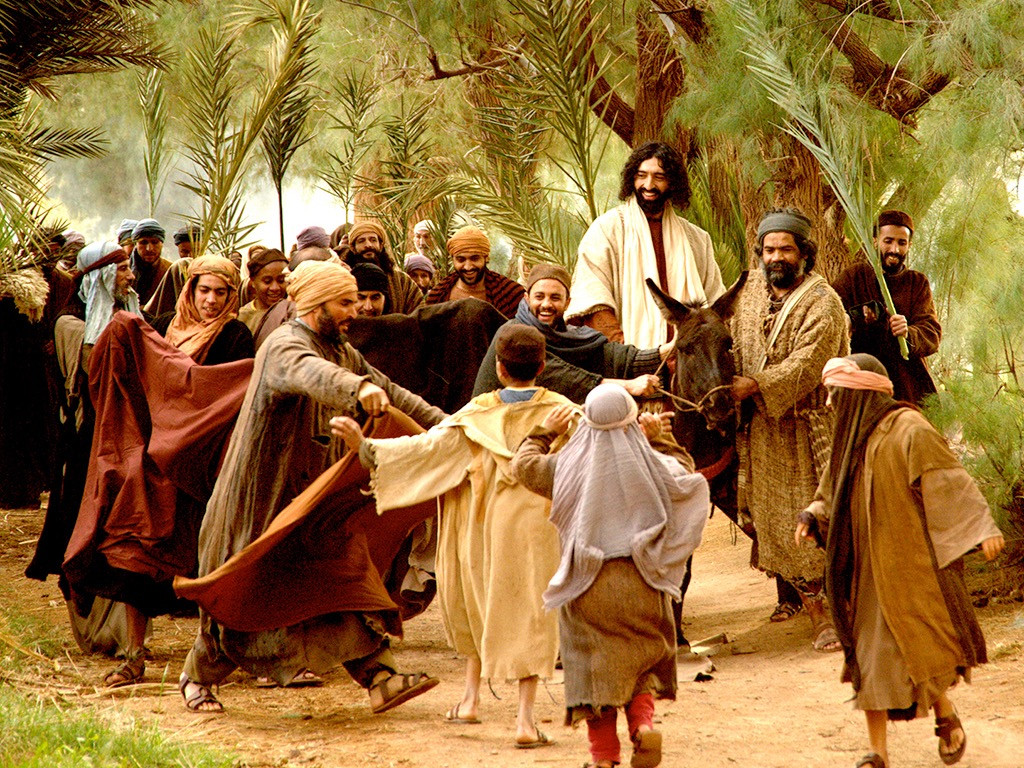
On first blush, this week’s Palm Sunday story is quite simple. Jesus and his ever growing band of disciples have been journeying from Galilee and have now reached Jerusalem in time for the Passover festival. Jesus procures a donkey and rides this into the city while his followers wave branches and shout enthusiastically ‘Hosanna! Blessed is the one who comes in the name of the Lord!’
On deeper reflection, it’s also an odd story. Jesus walks everywhere. It’s basically how people got around. Yet on this occasion he is at pains to ride an animal, and a donkey at that. Procurement of the donkey takes up more than half the episode, so was presumably unexpected and memorable. First time rider riding an animal that’s never been ridden before. What could possibly go wrong?!
It seems that it’s all quite deliberate. Jesus could have entered the city inconspicuously among the Passover crowds. This may have been the prudent and safe course of action. But Jesus seems intent on making a statement. That statement appears to be political, namely that he is coming as king, humble and riding on a donkey according to the prophecy of Zechariah 9:9. The crowd’s response is from Psalm 118, a song of people welcoming a victorious king into the city with shouts of Hosanna and blessing.
So Jesus chooses to enter the city provocatively as a king, as the long awaited and hoped for Messiah. Up until this point in Mark’s gospel, Jesus has been very careful to keep his identity under wraps, which is commonly referred to as the ‘messianic secret’ in Mark’s Gospel. But now he comes openly as the Messiah. Why the change in approach? Why stir up the crowd’s imagination when it’s clear that he is not the type of Messiah they were hoping for? But perhaps that’s the point. Jesus is in fact the Messiah and the events of the next week will show the type of Messiah that he is.
